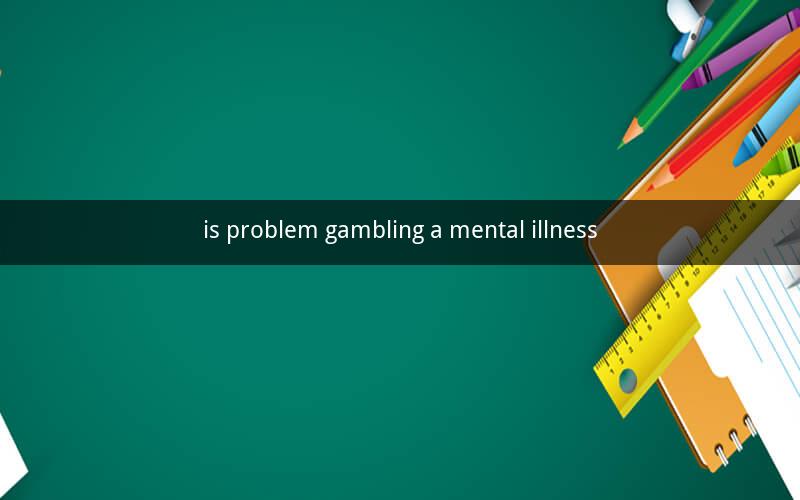
Table of Contents
1. Understanding Problem Gambling
2. Defining Mental Illness
3. The Intersection of Problem Gambling and Mental Health
4. Symptoms and Signs of Problem Gambling
5. The Psychological Impact of Problem Gambling
6. The Biological Factors in Problem Gambling
7. Treatment Approaches for Problem Gambling
8. The Role of Therapy in Treating Problem Gambling
9. Medication and Its Effectiveness
10. The Importance of Support Groups
11. Conclusion
1. Understanding Problem Gambling
Problem gambling, also known as gambling disorder, is a condition characterized by the inability to control or stop gambling despite negative consequences. It is a serious issue that affects individuals, families, and communities. Many people engage in gambling for entertainment, but for some, it becomes an addiction that disrupts their lives.
2. Defining Mental Illness
Mental illness refers to a wide range of conditions that affect a person's mood, thinking, and behavior. These conditions can range from mild to severe and can affect anyone, regardless of age, gender, or background. Mental illnesses are often associated with distress and impairment in social, occupational, or other important areas of functioning.
3. The Intersection of Problem Gambling and Mental Health
The relationship between problem gambling and mental health is complex. Many individuals who struggle with problem gambling also experience mental health issues, and vice versa. Some common mental health conditions associated with problem gambling include depression, anxiety, bipolar disorder, and substance use disorders.
4. Symptoms and Signs of Problem Gambling
Symptoms of problem gambling include:
- Continual urge to gamble
- Need to gamble with increasing amounts of money to achieve the desired excitement
- Repeated failed attempts to stop gambling
- Preoccupation with gambling
- Risking or losing relationships, work, or education due to gambling
- Using gambling as a way to cope with stress or negative emotions
5. The Psychological Impact of Problem Gambling
Problem gambling can have a significant psychological impact on individuals. It can lead to feelings of guilt, shame, and despair. Those affected may also experience mood swings, anxiety, and depression. The psychological impact can also extend to family members and friends, who may feel neglected, stressed, and overwhelmed.
6. The Biological Factors in Problem Gambling
Research suggests that biological factors may play a role in problem gambling. For example, studies have found that individuals with certain genetic markers are more susceptible to developing gambling disorders. Additionally, brain imaging studies have shown that problem gamblers may have differences in brain structures and function compared to non-gamblers.
7. Treatment Approaches for Problem Gambling
Treatment for problem gambling typically involves a combination of therapy, medication, and support groups. Cognitive-behavioral therapy (CBT) is one of the most effective forms of treatment. CBT helps individuals identify and change the thoughts and behaviors that contribute to their gambling disorder. Other forms of therapy, such as dialectical behavior therapy (DBT) and acceptance and commitment therapy (ACT), may also be beneficial.
8. The Role of Therapy in Treating Problem Gambling
Therapy plays a crucial role in treating problem gambling. It helps individuals understand the underlying causes of their gambling disorder and develop strategies to cope with triggers and cravings. Therapy can also help individuals rebuild relationships, improve their self-esteem, and develop healthier coping mechanisms.
9. Medication and Its Effectiveness
In some cases, medication may be used to treat problem gambling. Antidepressants, mood stabilizers, and anti-anxiety medications may be prescribed to help manage symptoms of co-occurring mental health conditions. However, medication alone is not typically sufficient to treat problem gambling.
10. The Importance of Support Groups
Support groups, such as Gamblers Anonymous, can provide individuals with a sense of community and understanding. These groups offer a safe space for individuals to share their experiences, learn from others, and develop coping skills. Support groups can be a valuable resource for individuals struggling with problem gambling.
11. Conclusion
Problem gambling is a complex issue that can have a significant impact on individuals and their loved ones. While it is not classified as a mental illness, it is closely linked to mental health issues. Understanding the relationship between problem gambling and mental health is crucial for effective treatment and support. By seeking help and engaging in treatment, individuals can overcome their gambling disorder and improve their overall well-being.
Questions and Answers
1. Q: What is the most common form of treatment for problem gambling?
A: Cognitive-behavioral therapy (CBT) is one of the most effective forms of treatment for problem gambling.
2. Q: Can problem gambling lead to other mental health issues?
A: Yes, problem gambling can lead to other mental health issues, such as depression, anxiety, and substance use disorders.
3. Q: Are there any genetic factors that contribute to problem gambling?
A: Yes, research suggests that certain genetic markers may make individuals more susceptible to developing gambling disorders.
4. Q: Can medication help treat problem gambling?
A: Medication may be prescribed to help manage symptoms of co-occurring mental health conditions, but it is not typically sufficient to treat problem gambling on its own.
5. Q: Are there any support groups available for individuals struggling with problem gambling?
A: Yes, support groups such as Gamblers Anonymous can provide individuals with a sense of community and understanding.
6. Q: Can therapy help individuals rebuild their relationships after struggling with problem gambling?
A: Yes, therapy can help individuals rebuild relationships by addressing underlying issues and developing healthier coping mechanisms.
7. Q: Is problem gambling a mental illness?
A: Problem gambling is not classified as a mental illness, but it is closely linked to mental health issues.
8. Q: Can problem gambling be cured?
A: Problem gambling can be treated and managed effectively, but it is not always curable.
9. Q: How can individuals prevent problem gambling?
A: Individuals can prevent problem gambling by setting limits on their gambling activities, seeking help when needed, and developing healthy coping mechanisms.
10. Q: What is the most important factor in treating problem gambling?
A: The most important factor in treating problem gambling is seeking help and engaging in treatment.